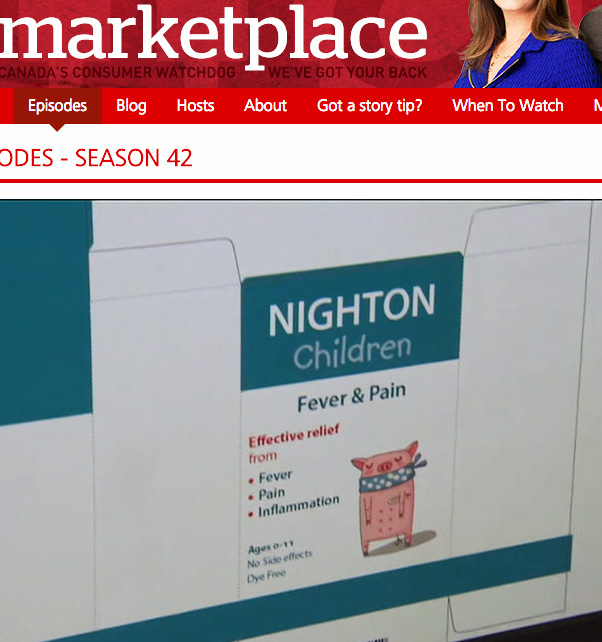On the March 13 episode of CBC’s Marketplace, called “A Licence to Deceive,” the show’s staff created an imaginary product for the treatment of fever, pain and inflammation in children. They called it Nighton – an anagram for “nothing.” And they got the homeopathic recipe for it from a very old homeopathic encyclopedia – photocopying the three pages of product claims and ingredients directly out of the book. Then they created some fake but effective packaging and submitted it all in a licencing application to Health Canada.
To the Canadian health regulator’s embarrassment, the application was approved and the bogus product got marched out on national television. Dr. Matthew Stanbrook, deputy editor of the Canadian Medical Association Journal provided the observation that the Nighton approval “really makes a joke of the regulatory process.”
In the next segment of the program, a mosquito repellent called Mozi-Q was tested in the lab and proved to be totally ineffective. That product had been funded during a recent episode of Dragon’s Den – when the dragons were convinced of the products efficacy simply by the fact that it had received Health Canada approval. After it failed the test, all funding was withdrawn.
Likewise, a panel of parents who told Marketplace that they would have purchased Nighton – largely based on the Health Canada approval – expressed their disillusionment and loss of faith in the approval system.
Manufacturers and retailers of naturopathic products should all be very concerned about Health Canada’s loss of credibility during this episode. No matter how good the product you have spent years and millions of dollars developing, no matter how unimpeachable the lines of medicines and supplements you sell in your store, this kind of publicity undermines consumer faith in all products submitted for Health Canada approval.
Maybe it’s time for everyone in the industry to raise their voices as one and demand tougher licencing regulations.









